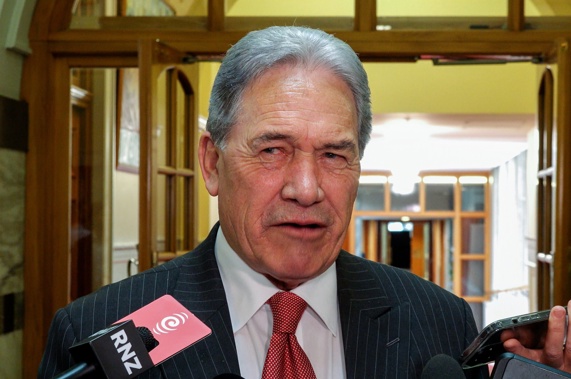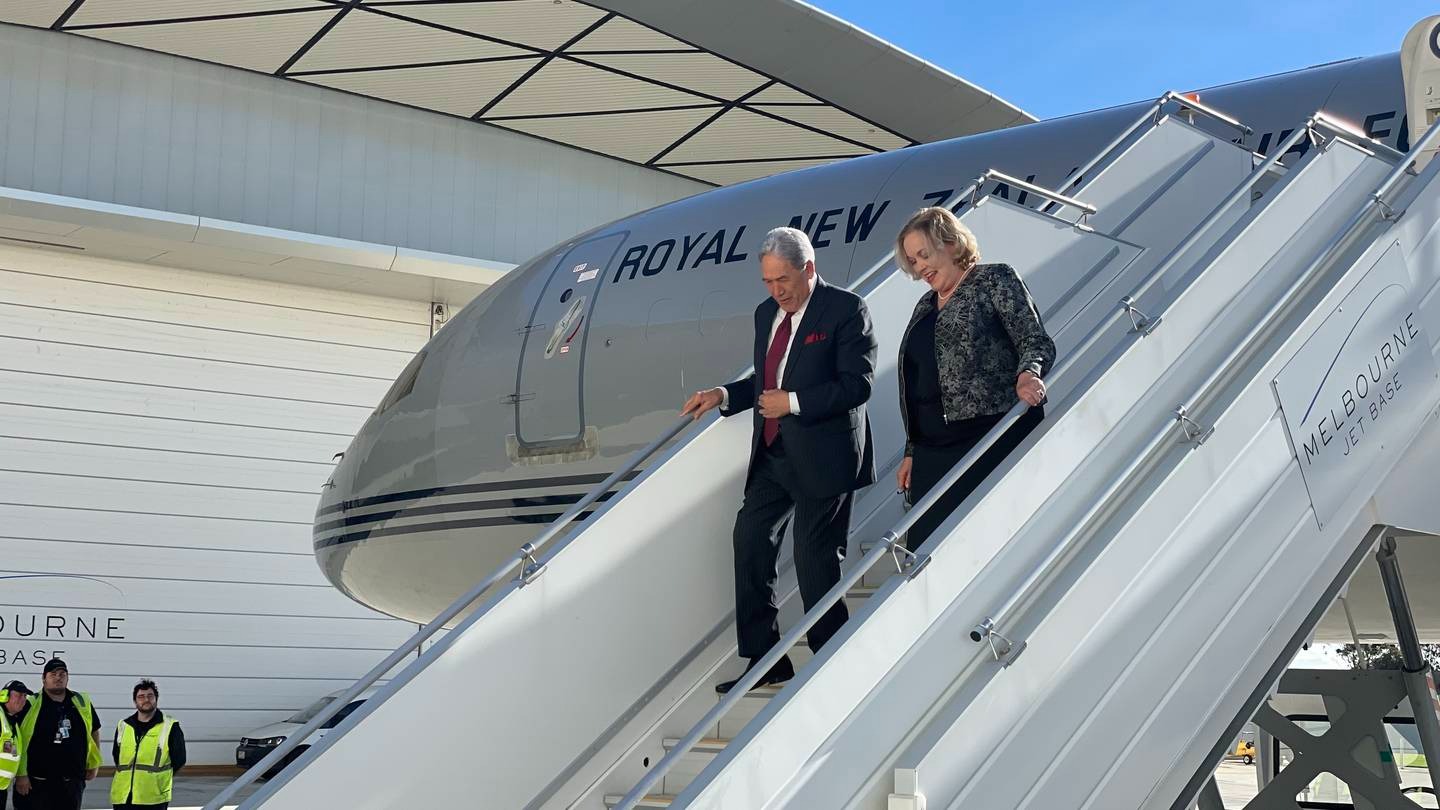
Confusion over what the second pillar of Aukus involves has become a roadblock for the Government to make a decision over whether it wants to join or not, with Foreign Affairs Minister Winston Peters outlining just how little he's been able to decipher.
Talk has been ongoing over whether or not New Zealand should join Aukus, the international tech-sharing agreement formed by the United States, the UK and Australia.
In a speech yesterday to the Institute of International Affairs, Peters stressed that Aukus is not a military alliance but a tech agreement developed in response to "a deteriorating strategic environment".
Some have voiced their support for New Zealand to involve itself in the alliance, with former Defence Minister Wayne Mapp telling Newstalk ZB just this morning that Aotearoa could benefit from joining.
Mapp said his reasoning was due to the fact Aukus already involved the country's closest traditional allies.
"The country we're closest to is Australia - which is our only formal ally - so not joining would actually be turning our back on them. And that's a pretty steep decision to make," said Mapps.
But inside the decision room, a lack of information around the second pillar appears to be preventing the Government from deciding whether Aukus is for them.
Talking to Newstalk ZB this morning, Peters was asked directly by ZB host Mike Hosking whether he knew what Pillar 2 of Aukus entailed.
"No, I don't," was his candid reply.
"I'm trying to find out from a process carried out in October 2021. So Prime Minister [Jacinda] Ardern, later-on followed up with [Chris] Hipkins and then later with Ministers of Defence [Andrew] Little and [Peeni] Henaare. I'm trying to find out what on earth is going on in terms of this discussion."
Peters said the nature of the tech-sharing mechanism didn't clearly demonstrate whether it would benefit New Zealand's economy or a range of other factors that Peters said were being discussed.
"And in the middle of this ... all sorts of people are rushing to judgment and [being] way ahead of themselves and not even being remotely briefed on the matter."

Hosking asked if Anthony Blinken, US Secretary of State, was able to provide some clarity on Aukus when Peters visited America several weeks back. Peters said Blinken wasn't able to provide insight.
But rather, Peters pointed to one aspect of Aukus that appeared to be overlooked by those commenting on whether New Zealand should join.
"As I tried to explain last night, the first thing we have to resolve, having gotten all that information, is to be asked to join in the first place, and that hasn't happened. That's a pre-condition," he told Hosking.
"The second condition is discussing it with the New Zealand people."
Peters said he did not know when New Zealand might be invited to join the alliance and was even unable to confirm whether or not Aukus was a game-changer for New Zealand's global partnerships or just an interesting side event.
"I'm telling you, we simply have not got that far down the pathway of knowledge on the matter to even answer those questions. That's why we defined this debate as extraordinary."
Hosking asked Peters about timeframes, whether the Government knew when enough information would be provided to make a firm decision and when the public would be consulted on whether joining Aukus was the right thing to do.
But Peters, again, said he wasn't sure and instead stated other matters were taking precedence in his mind.

"If you look at the countries putting rockets into the stratosphere, New Zealand is number four in the world, we've got a brilliant scientific community here that doesn't get the help it needs," he said.
"There's also other matters related to this - for example, the ability to transfer electricity not by cable but by new science. Incredible stuff that countries are needing in terms of energy so to speak. But simply [myself], and nobody around me doing their best and focusing on the issue, knows where [Aukus] will take us.
"But we do promise one thing - we will consult with the New Zealand people on the way through."
One of the underlying themes of whether or not New Zealand would consider joining Aukus would be risking a potential strain on the country's trading relationship with China.
Both China and the United States have struggled with uncomfortable tension over recent years and joining Aukus would be a clear demonstration of siding with the US and potentially sour things on China's end.
Mapp was asked by Newstalk ZB this morning about Labour appearing to change its position on Aukus, from being positive towards it while in Government to now speaking out against it since moving to Opposition.
Mapp said Labour was looking at its future coalition partners.
"Also, to be honest, there's always been a tinge of anti-Americanism about some of them. They just don't like cosying up to America too much," said Mapp.
"When they're in Opposition, they tend to have a someone different tune to [when they are] in Government."
Hosking asked Mapp if being anti-American was being pro-Chinese.
"No. Labour has always seen an independent foreign policy as being something at least in an idealistic way, something more like non-aligned," said Mapp.
"But of course, it doesn't mean that. I mean, Australia would say it's got an independent foreign policy as well - but we are definitely different to Australia ... we're smaller, more isolated and frankly have more choices."
Take your Radio, Podcasts and Music with you









